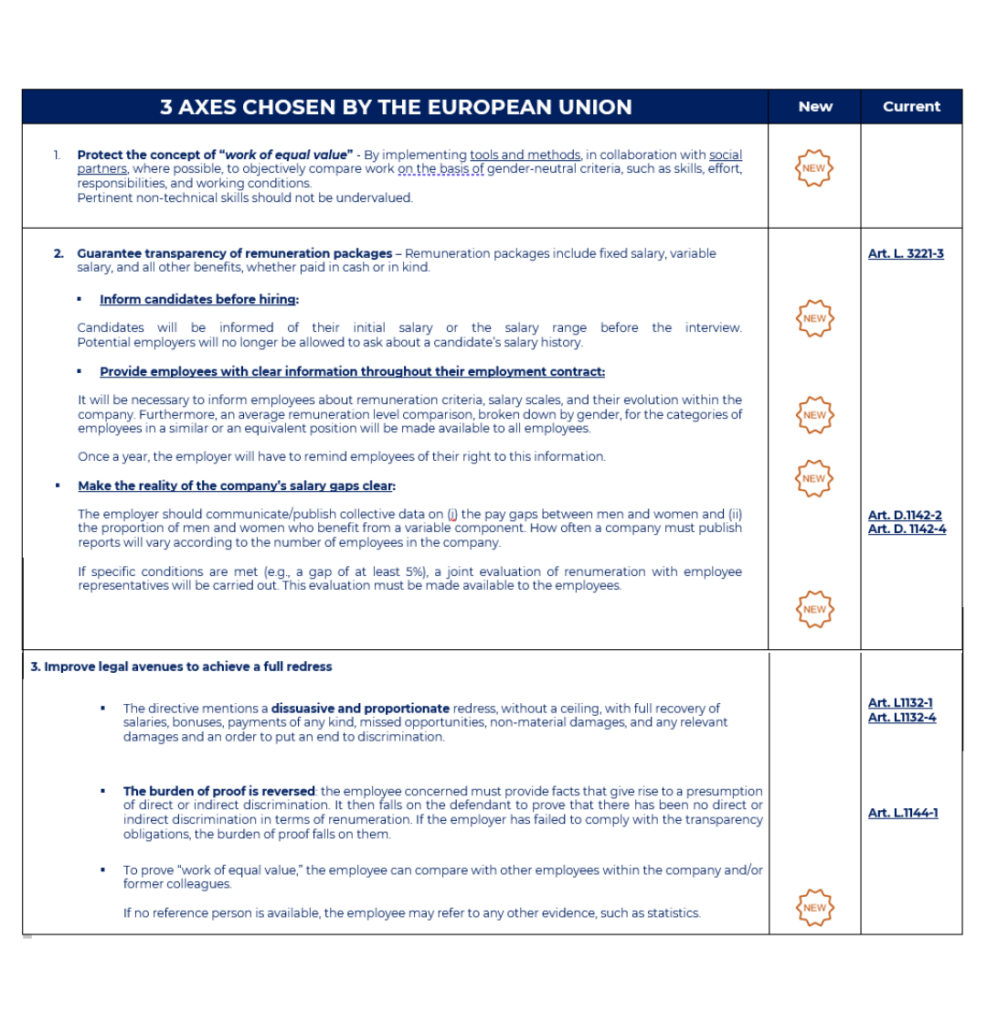Pay equity: obligations required by the European Directive

Social law is a living law that is constantly changing. This is why Primexis, in collaboration with the law firm Dupard & Guillemin, provides you with regular support and answers your questions from the viewpoint of Payroll and Labor Law.
FINDING No. 1: old regulation, but inadequate results
Since January 1, 1958, all Member States of the European Union have been required to ensure the application of the principle of equal pay for equal work for men and women. Despite some progress, the pay gap remains significant.
According to the European Union, on average, women earn 13% less per hour than men. In France, this gap is 15.8%.
FINDING No. 2: pay equality principle hindered by 3 significant obstacles
According to an assessment carried out in 2020, three legal obstacles hinder the application of the equality principle:
– Lack of transparency within compensation systems
– Lack of legal certainty surrounding the notion of “work of equal value”
– Procedural difficulties encountered by victims of discrimination
The European Directive of May 10, 2023, is structured around these three axes, constituting a comprehensive text that must be transposed into French law by June 7, 2026, with more concrete measures. Nevertheless, some similar provisions are already written into our legislation, in particular, for companies with more than 50 employees.


– Career breaks: 91% of career breaks are taken by women to take care of children
– Part-time employment: 75% of part-time workers are women
– Imbalance of management: women hold 35% of management positions
– Professional discrimination: women hold 73% of positions in the lowest-paid sectors (healthcare and education)


